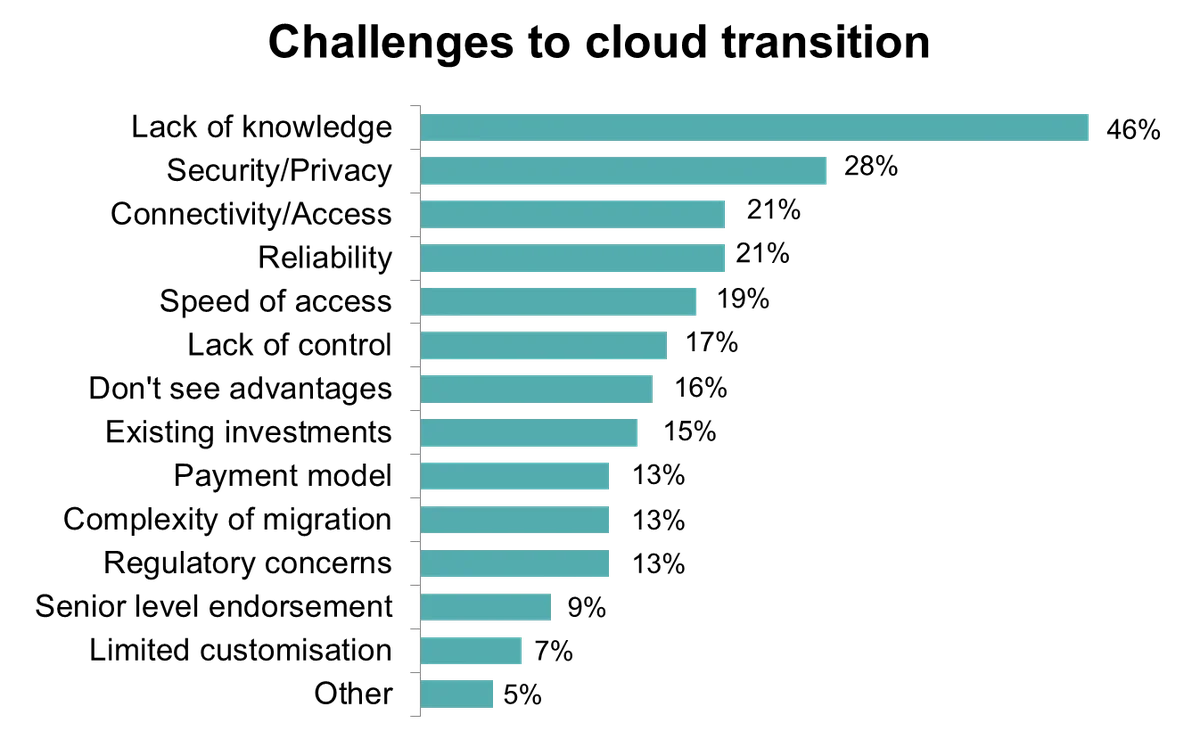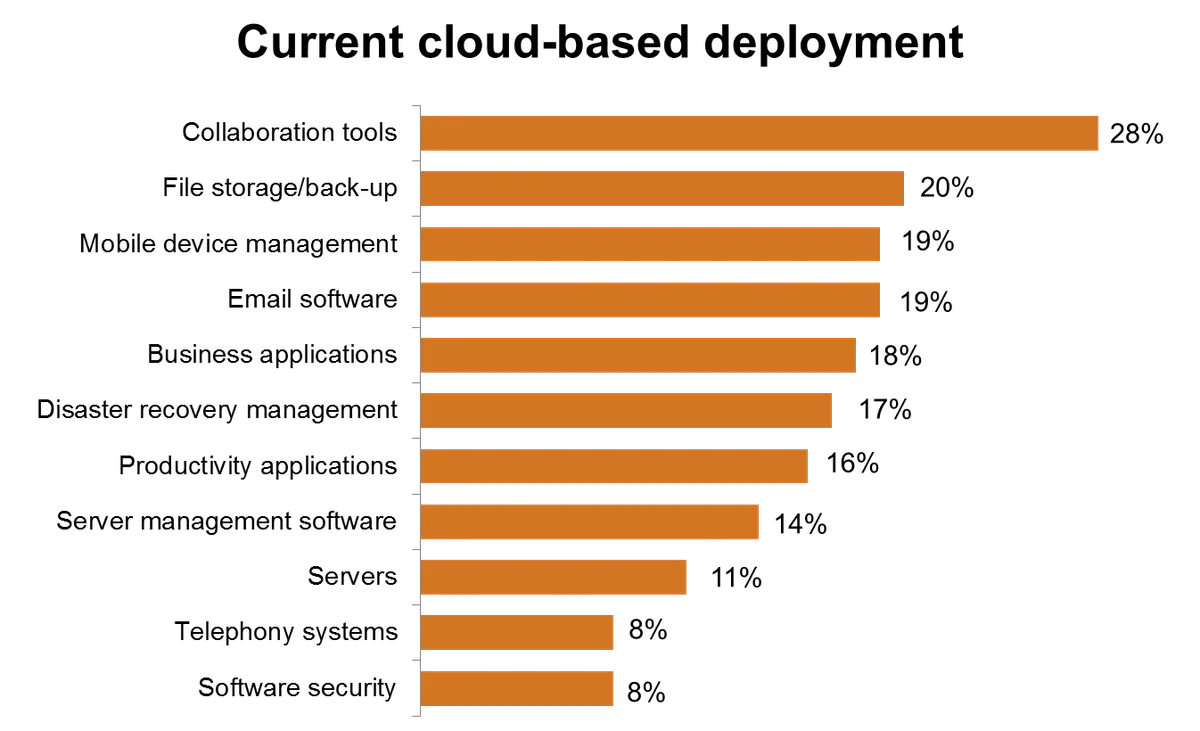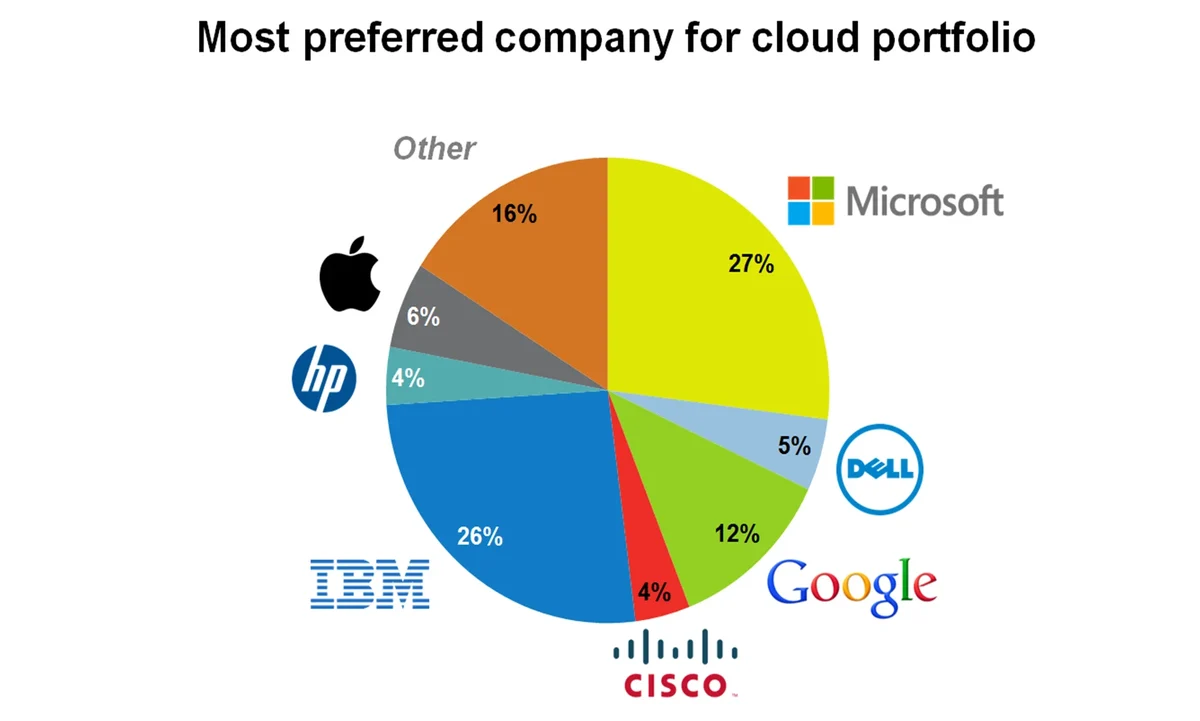While the majority of small and medium sized enterprises see the cost benefits of using cloud services, a lack of knowledge is still a significant barrier to adoption new research from YouGov shows.
The survey of 529 IT and business decision makers in UK SMEs found that almost half (46%) say a lack of knowledge is the biggest challenge to adopting cloud-based services, significantly higher than security and privacy concerns (28%). More than one in five (21%) said the biggest obstacle was either Connectivity/Access or Reliability and just under a fifth (19%) said speed of access was one of the biggest barriers.

YouGov’s survey shows that over half (53%) see that having less infrastructure to support as being a key benefit of cloud-based services. Financial savings associated with cloud services are seen as a major advantage to SMEs, with the rest of the top five being cost reduction measures. They are: having to buy less infrastructure (33%), savings on initial cost/capital (27%) having less infrastructure to configure (24%) and lower cost of ownership (23%).
The study covered 11 different types of technology products and services SMEs have used and procured over the past 12 months. YouGov found the key areas of adoption for cloud-based services are collaboration tools (28%) followed by email software, file storage/back-up, and mobile device management (19-20% each).

The survey found that the most preferred brand for a company’s cloud portfolio is Microsoft (27%) closely followed by IBM (26%). Google is favoured by 12% compared to Apple on 6%, Dell on 5% and Cisco and HP on 4%. Other brands make up 16% of the market.

John Gilbert, Consulting Director YouGov Technology & Telecoms said: “Security and reliability will always be a concern, but some of the barriers can be mitigated if the industry as a whole can better educate the SME market on the benefits of cloud adoption. It is expected that SMEs would put some of that trust in IBM and Microsoft given how entrenched they are in this sector. But the individual technologies are still highly competitive.”








